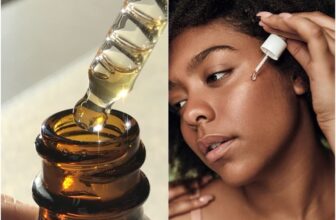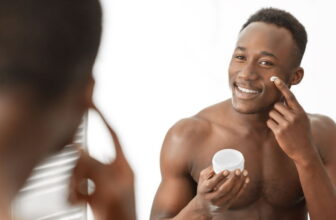While many of us may seek summer bronze and a sun-kissed glow, the methods people adopt to achieve that look can sometimes do more harm than good.
One such method that has gained traction is using baby oil for tanning. While the intention might be to accelerate the tanning process, the reality is that this practice is not only ineffective, but also poses significant risks to your skin health.
Many believe that slathering baby oil on their skin before sun exposure will deliver the browner tones they desire much faster. The allure of a quick tan has made this trend tempting for beach-goers and sunbathers alike.
However, it is crucial to understand that baby oil is not formulated for sun exposure. It does not contain any sun protection factors (SPF) or ingredients that provide the necessary defense against harmful UV rays that penetrate the skin.
So, before you reach for that shiny little bottle again, let’s break down why using baby oil for tanning isn’t just a bad idea, it’s a risky one.
What Is Baby Oil?
Baby oil is primarily composed of mineral oil, a byproduct of petroleum refining, combined with fragrance. It’s designed to lock in moisture, creating a barrier that keeps the skin hydrated. While beneficial for moisturising, its application in sunbathing contexts is where concerns arise.
Historically, baby oil has been used to increase tanning due to its ability to intensify the sun’s effects on the skin. By creating a reflective layer, it increases UV radiation absorption, leading to a faster tan.
This method gained popularity in the mid-20th century, especially in hot and sunny regions, as a means to achieve a bronzed complexion quickly. (Do you have the external link for the highlighted texts to reference your claim?)
So, Is It Safe To Use Baby Oil for Tanning?
The short answer? Not really. While baby oil may give your skin a glossy, sun-kissed glow, it’s far from a safe tanning option.
Its shiny finish might make you feel like you’re getting a quicker tan, but what you’re doing is exposing your skin to intense, unfiltered UV damage. According to Dr. Daniel Shurman, using baby oil for tanning increases your risk of getting sunburn because it helps concentrate the sun’s rays.
 Photo: @Alexandra
Photo: @Alexandra Unlike tanning oils or sunscreens, baby oil contains no sun protection factor (SPF). It wasn’t made for sun exposure. Instead, it acts like a magnifying glass, concentrating and intensifying the sun’s rays, allowing them to penetrate your skin faster and deeper. That might give you a fast tan, but it also puts your skin at serious risk.
Additionally, Clear Derm Clinic highlights that prolonged exposure to (UV) rays, especially when the skin’s sensitivity is heightened by substances like baby oil, can cause significant skin damage.
Here’s why using baby oil for tanning is a bad idea:
1. Increased UV Radiation Absorption
Baby oil lacks any sun protection factor (SPF), leaving the skin vulnerable to harmful ultraviolet (UV) rays. The oil’s reflective properties amplify UV penetration, heightening the risk of sunburn and long-term skin damage.
2. Elevated Skin Cancer Risk
Prolonged exposure to UV radiation is a leading cause of skin cancers. Using baby oil for tanning increases this risk by causing deeper UV penetration without any protective barrier. Dermatologists advise against this practice, emphasising that no tan is worth compromising one’s health.
3. Accelerated Skin Ageing
UV exposure breaks down collagen and elastin fibres, leading to premature ageing signs such as wrinkles, fine lines, and age spots. Baby oil accelerates this process by intensifying UV damage, resulting in faster onset of these ageing indicators.
4. Potential for Severe Sunburn
Without SPF protection, the skin is susceptible to severe sunburn when exposed to the sun with baby oil applied. This not only causes discomfort but also increases the likelihood of long-term skin issues, including hyperpigmentation and scarring.
Some believe that layering baby oil over sunscreen offers enhanced tanning while maintaining protection. However, this combination can dilute the effectiveness of sunscreen, reducing its SPF and leaving the skin exposed to harmful rays. Board-certified dermatologist, Dr. Susan Massick, warn against layering baby oil over sunscreen and recommend using only broad-spectrum sunscreens with enough SPF protection.
What About Tanning Oils?
Tanning oils are often marketed as a safer alternative to baby oil, but the truth is, any method that involves tanning under direct sunlight still poses serious risks to your skin. While some tanning oils are formulated with ingredients like carrot seed oil, coconut oil, or green tea extract and may contain SPF, they are not foolproof.
Some of these oils can help hydrate the skin and may slightly reduce UV damage if they include sun protection. But the keyword here is reduce, not eliminate. Most dermatologists agree that deliberately tanning increases your risk of premature ageing, sunburn, and skin cancer, and recommend “faking” it with bronzers, while still applying sunscreen.
So, while tanning oils might offer slightly more protection than baby oil, they are not a safe green light to tan. If you still choose to use them, it’s crucial to opt for one with a broad-spectrum SPF of at least 30 and to limit your time in the sun.
Baby Oil, Tanning Oil, Or Natural Oils: Which Is Best?
Some people believe that switching from baby oil to tanning oil or natural oils like coconut or carrot oil makes sun tanning safer. However, dermatologists caution that deliberate sun tanning, regardless of what you apply, still exposes your skin to harmful UV rays.
 Photo: Instagram/@jagabeauty
Photo: Instagram/@jagabeauty Baby oil offers no sun protection and can intensify UV damage. Tanning oils, even those with added SPF, often promote extended sun exposure, which still increases the risk of burns and long-term skin damage. Natural oils may hydrate the skin, but don’t provide the UV defence necessary for safe tanning. Even if you choose to use a tanning oil, it should contain a high SPF to help reduce the risks.
Experts agree that no topical oil makes UV tanning safe. If you’re after a sun-kissed glow without the risk, sunless tanning methods like bronzing lotions and self-tanners are a more skin-conscious option. While generally considered safer, it’s best to use high-quality, dermatologist-recommended products and perform patch tests, especially if you have sensitive skin.
While the immediate gratification of a quick tan using baby oil might be tempting, the long-term consequences are far from desirable. From heightened cancer risks to accelerated ageing, the dangers associated with this practice are substantial. Prioritising skin health by avoiding harmful tanning methods and opting for safer alternatives is not just advisable but essential.
Photo By: Kaboompics.com









